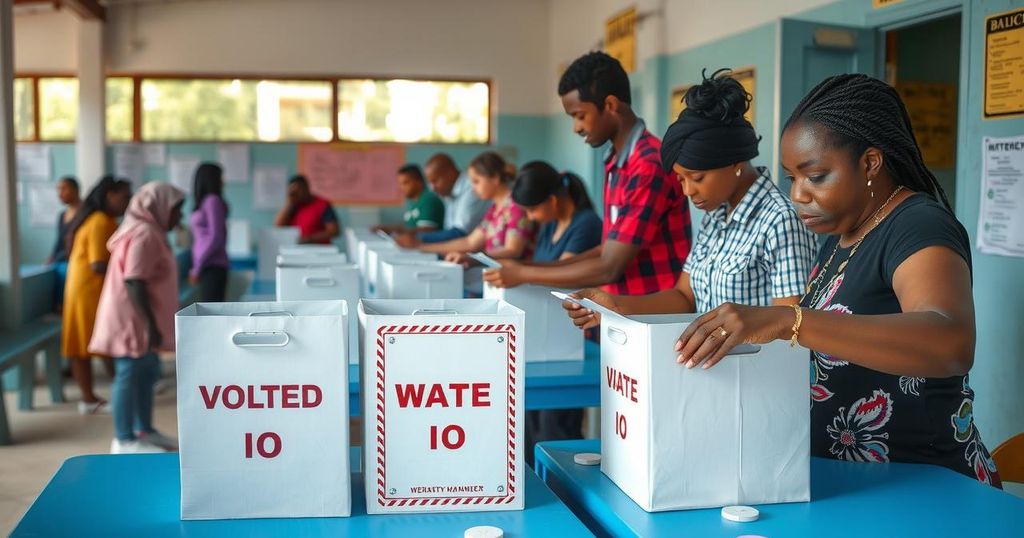Comoros held parliamentary elections with widespread opposition boycotts due to transparency concerns. Nour El-Fath Azali, the President’s son, seeks a legislative seat. Reports indicated delays and inadequate facilities at polling stations. Despite allegations of electoral fraud, the ruling party is anticipated to dominate the parliament. A second voting round is scheduled for February 16, amidst ongoing tensions following January’s contested presidential elections.
The Indian Ocean nation of Comoros conducted its parliamentary elections on Sunday, amidst a significant boycott from opposition factions citing a lack of transparency in the electoral process. The elections featured Nour El-Fath Azali, son of the sitting President Azali Assoumani, competing for a seat in a constituency near Moroni. Reports indicated delays at polling stations due to inadequate materials, and observers noted improvised voting setups that compromised voter privacy.
James Burns, a United States electoral observer, remarked on the lack of organization, stating officials had to ‘improvise’ at one booth with minimal provisions. Nour Azali, who recently gained substantial powers within the government, faced critiques regarding his role, seen by many as akin to a de facto prime minister. President Azali Assoumani, a former military leader, was re-elected in January 2024 amid controversies surrounding electoral integrity and subsequent violent protests.
Despite criticisms, President Azali expressed gratitude for the peaceful conduct of the election process thus far, asserting the necessity of a constructive opposition. Several opposition candidates chose to participate to prevent a repeat of the 2020 legislative elections, which were uncontested by rivals. Voter experiences varied, illustrated by a citizen’s complaint about the absence of indelible ink at polling sites. Furthermore, the ruling party, the Convention for the Renewal of the Comoros, is anticipated to retain a dominant presence in parliament, despite some candidates facing unopposed races. Approximately 340,000 registered voters are set to elect 33 parliamentarians through a two-round ballot system.
As the country moves forward, the upcoming second round of voting scheduled for February 16 will be crucial. Despite President Azali securing 57% of the vote in previous elections, allegations of fraud continue to cast shadows over his administration, as societal tensions simmer from recent civil unrest following the elections, which resulted in loss of life and injuries.
Comoros, an island nation in the Indian Ocean, has faced political instability and accusations of fraudulent electoral practices over the years. President Azali Assoumani, who has been in power since a coup in 1999, recently faced opposition in the form of boycotts and protests. His administration resulted in significant changes, including the consolidation of power among his close associates, notably his son, Nour El-Fath Azali. The political landscape is characterized by significant fragmentation among opposition parties, which complicates the electoral process and public participation.
The elections in Comoros signify a pivotal moment for the nation, marked by controversy and opposition dissent. While the ruling party appears poised to maintain control, the emerging dynamics of public sentiment and electoral participation may challenge the status quo moving forward. The success of the opposition in future elections remains uncertain, especially in light of ongoing allegations of electoral misconduct and the need for genuine democratic engagement in the country.
Original Source: www.arabnews.com






